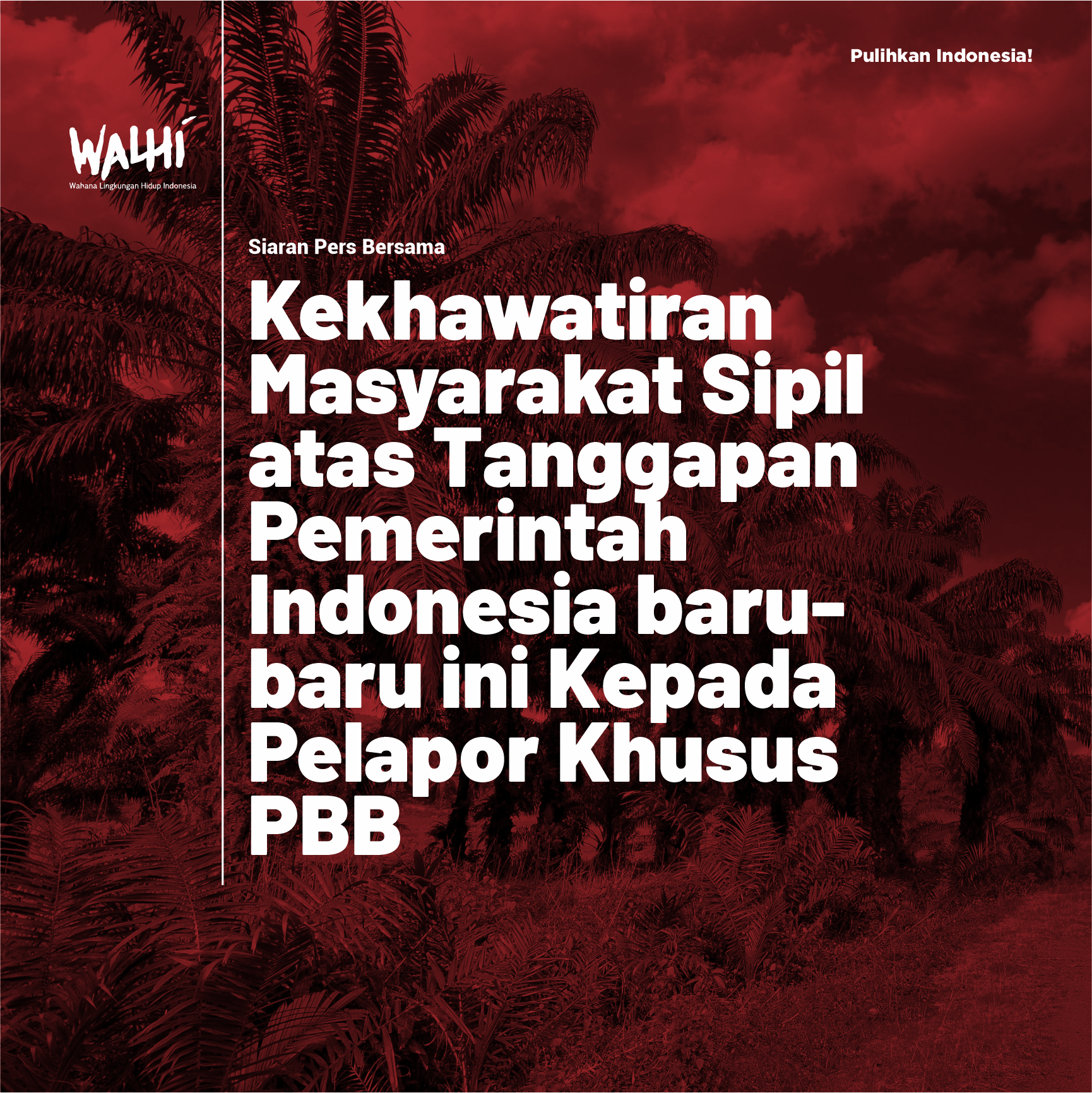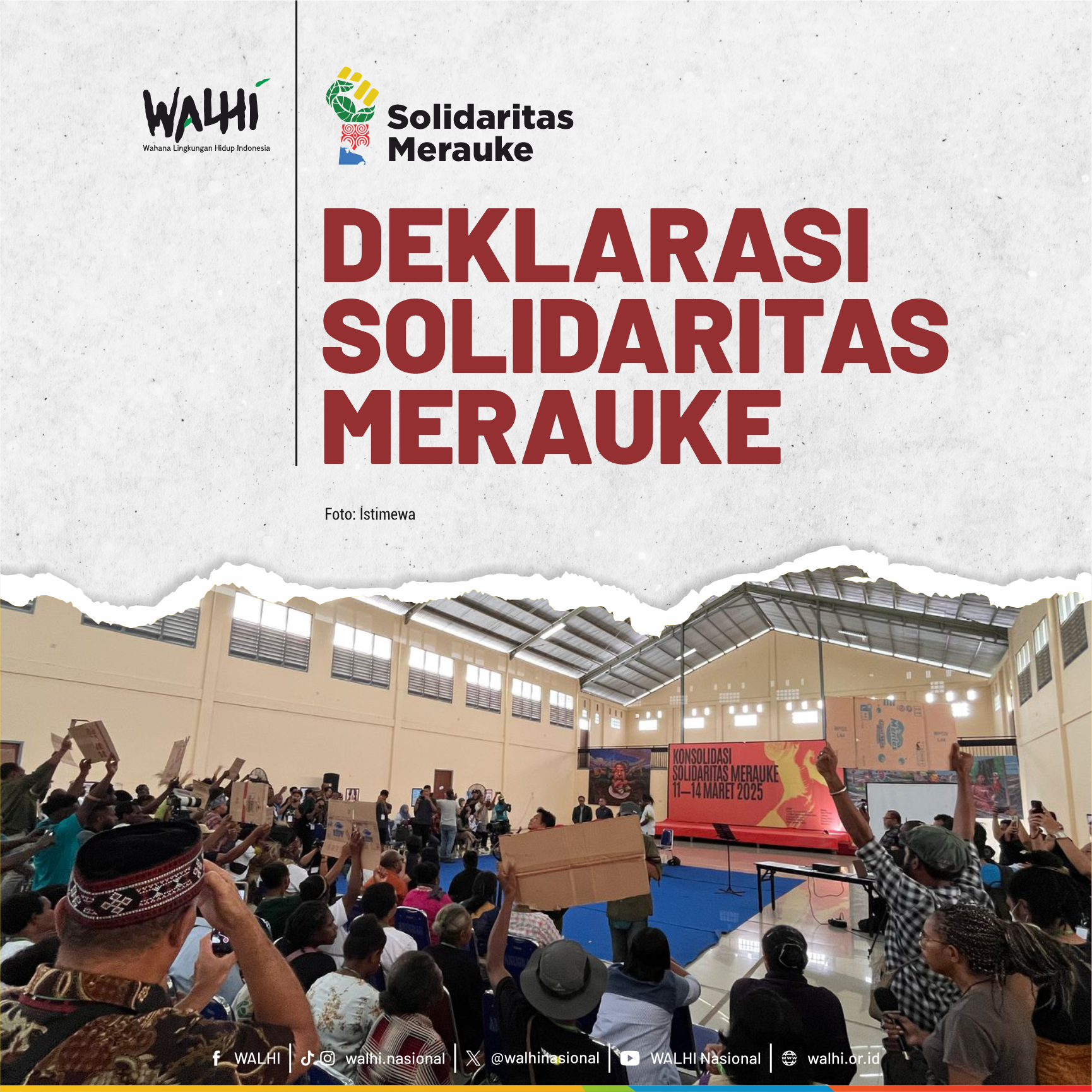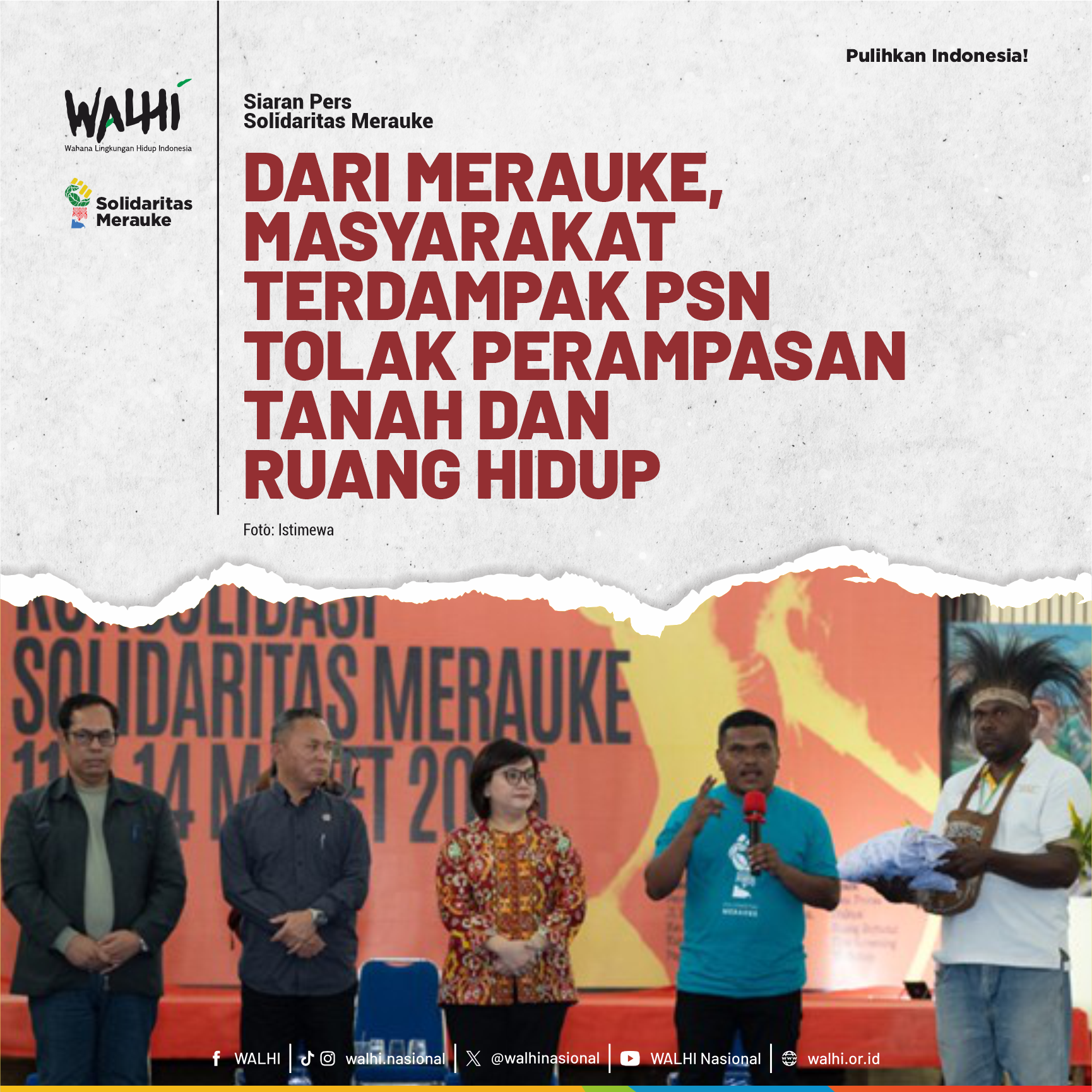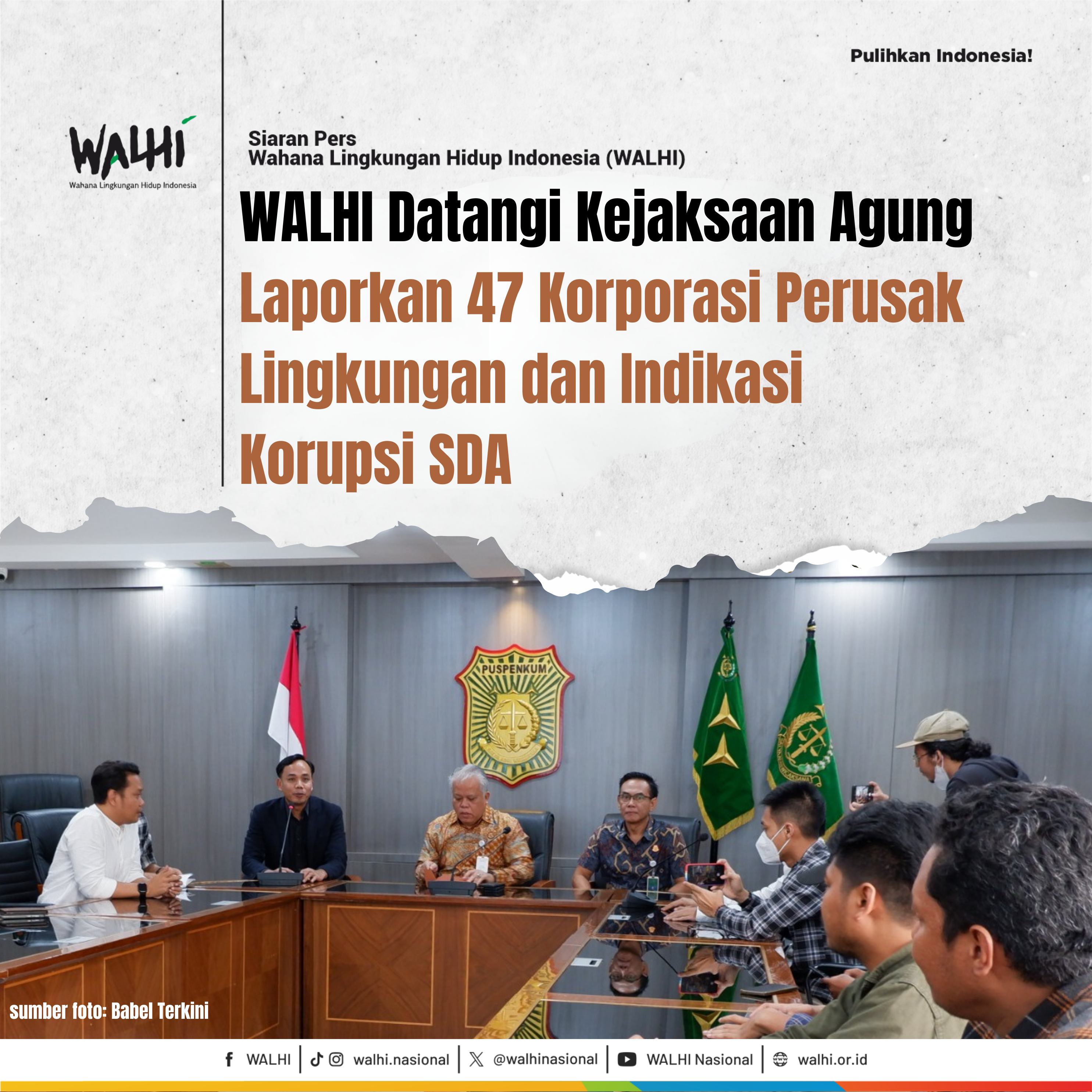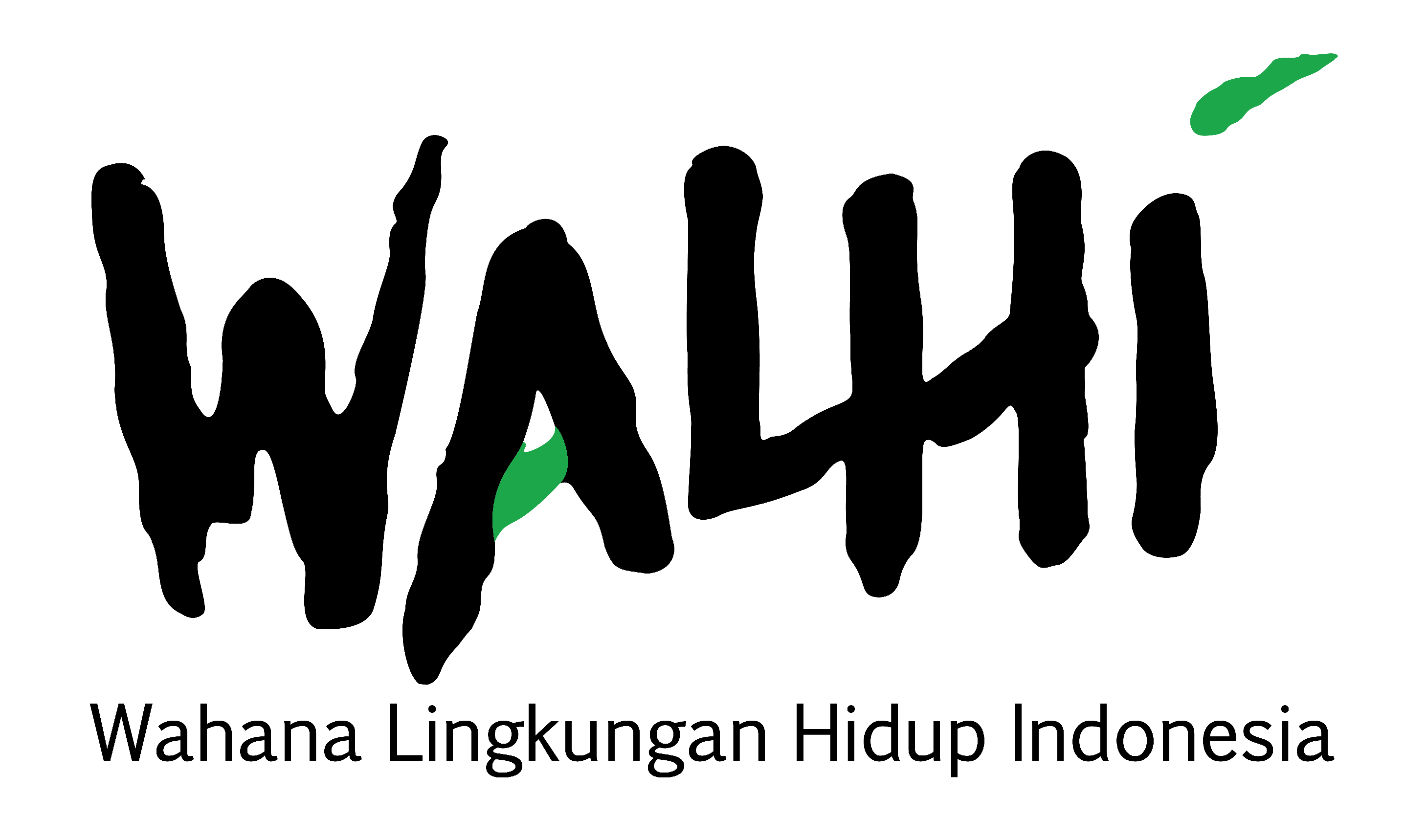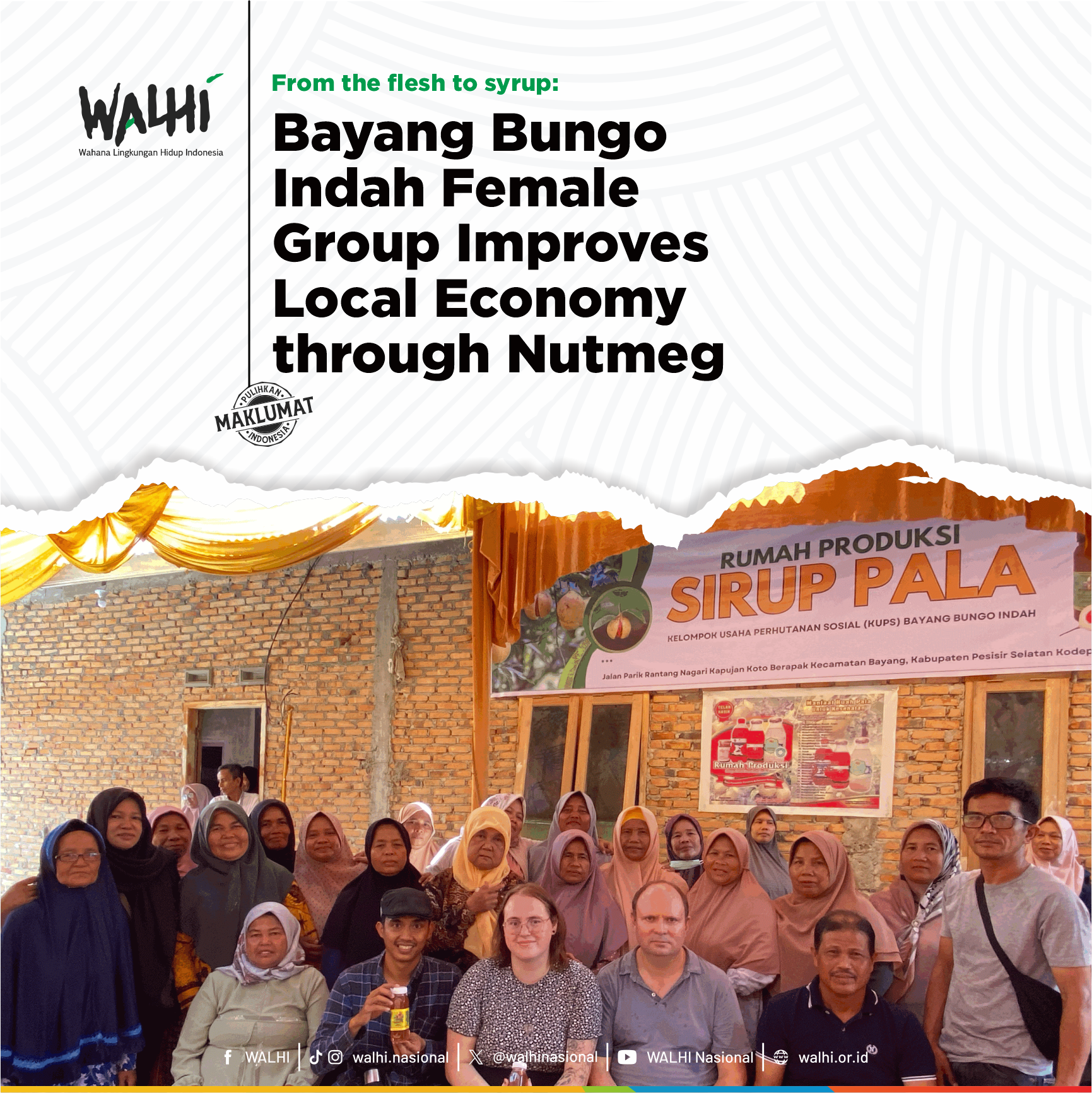
Pascall Beumer*
On September 3, 2024, in Nagari Kapujan Koto Berapak, a hilly region within the Pesisir Selatan Regency of West Sumatra, the air was filled with the scent of nutmeg as the women of the Bayang Bungo Indah Female Group gathered for a special occasion. The group, which started in 2016 with 100 members, has come a long way. The women of the village had once lived without fully realizing the potential of the forest around them. They were unfamiliar with how to use the full potential of its resources for economic gain. During this day, when WALHI, an international funder, and local government officials came to visit, they proudly showed their production house. This marked the official opening of the house.
This initiative received full support from the local village government which highlighted the importance of this business to the region and how it demonstrates the potential of local resources.
The Bayang Bungo Indah Female Group in Nagari Kapujan showcasing their nutmeg syrup in front of the production house.
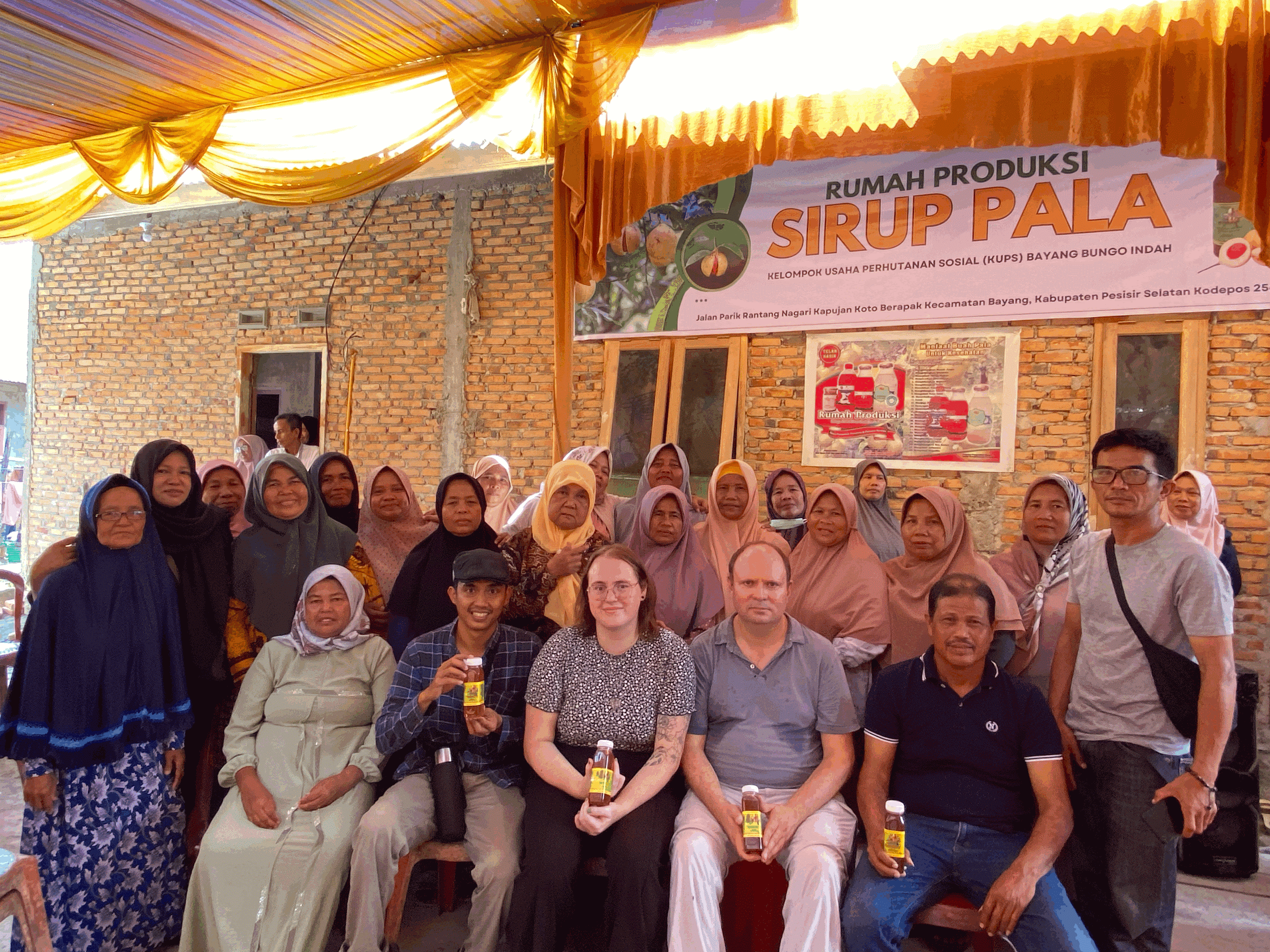
The Bayang Bungo Indah Female Group in Nagari Kapujan showcasing their nutmeg syrup in front of the production house.
Hartati, the head of the Bayang Bungo Indah Female Group, shared the group’s inspiring journey, which began in 2016. She saw the untapped potential of the nutmeg forest surrounding the community, but the locals had no prior experience in using it beyond the seeds, which were mainly used for food or oil extraction. WALHI stepped in to educate the community on how to utilize more of the nutmeg, particularly the flesh, which they had previously discarded.
‘’It began when each member contributed 100,000 rupiah at the time,’’ Hartati said. ‘’A lot of them could only pay after their rice or other crops they had harvested. The nutmeg syrup was introduced to local hotels, where it became a popular welcoming drink. The community was excited to see the product being used and shown at festivals. We are proud to have a label on our syrup bottles with ‘Produced by the Bayang Bungo Indah Female Group.’’
Nutmeg is known for its seeds but has diverse uses. Seeds are usually utilized for seasoning, nutmeg oil and mace. This flesh, which used to have no economic value, is however now utilized by the region to produce syrup with. Nutmeg has a sweeter side, as a syrup made from boiling the flesh is thick and sweet with an underlying nutmeg spice. The product is now a staple in the regional market and according to a local professor who did research on nutmeg syrup, it actually has health benefits.
The production is simple but not without its challenges. Initially, the blending machinery was provided by WALHI, but it frequently overheated and soon became impossible to operate continuously. Today, with their new production house which was established with the support from Nusantara Fund, the group is not obliged to pay rent for a building, and the profits can instead be invested into the business and ease the financial burden at home.
This initiative is part of Wahana Lingkungan Hidup Indonesia (WALHI)'s larger effort to create an economic ecosystem rooted in local wisdom and community-led land management. WALHI’s involvement extends beyond economic empowerment. It serves as a protective response to land grabbing by the state, where large investors often claim community-managed lands under the guise of national economic growth.
By supporting initiatives like the Bayang Bungo Indah Female Group, WALHI is helping communities demonstrate their ability to manage natural resources sustainably and independently. This strategy strengthens local governance and economic systems, ensuring that land remains under the control of the people who rely on it for their livelihoods. It also highlights how small businesses, like this syrup-making group, can contribute to reshaping national economic systems by integrating environmental, social, and economic priorities.
According to Uslaini, the former Director of WALHI West Sumatra, "These small but significant actions are being taken in many regions, safeguarding indigenous peoples and local farmers' rights to the land and resources they depend on."
The key to the group’s success lies in its commitment and solidarity. Initially, there were over 100 members, but now 66 remain fully dedicated. Each member is led by a captain, who coordinates activities and helps ensure the smooth running of production. "The commitment we’ve built is what makes this group successful," Hartati noted. "Before, we struggled to raise money, but now the collective income from syrup sales goes directly to the members, helping support their households."
This solidarity has paid off. The women won second place in a regional sustainable farming competition, earning 700,000 rupiah and a certificate of appreciation from the Governor of West Sumatra. Their syrup has gained recognition at the provincial and national levels, often featured at regional events. "This syrup is a source of pride for our village and beyond," Hartati said.
Sustainability and Future Goals
The group’s work is not just about economic gain but also environmental preservation. By using the whole nutmeg fruit and engaging in sustainable farming practices, the women are contributing to the protection of their local environment. "This business is about more than just producing syrup," Hartati said. "We’re also protecting the environment."
However, challenges remain. While the production house is operational, it is far from completed, and the group hopes for additional support from WALHI or other partners to make it more comfortable and efficient. Access to the market is another hurdle. "It’s easy to produce the syrup," Hartati explained, "but we need more access to markets and customers. We are using social media to promote our products, but we’d appreciate any help in gaining more visibility."
In closing, the women remain optimistic. "We believe the government is supportive of our efforts, and with more partnerships, we can thrive. This production house is just the beginning. We trust in our abilities, and we are confident that good things are yet to come."
(*) The writer is an intern with WALHI

